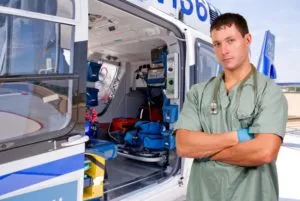As travel nursing continues to become a more viable option for nurses looking to expand their career, there is still more information they need to know before diving in head first. Travel nurses can find work in various environments that suit their professional and personal needs. They can even change specialties to gain experience in a new nursing field. However, even with so many opportunities to pursue, travelers need to know what to expect, especially with rapid response and crisis travel nurse contracts.
Both types of assignments tend to be shorter than traditional travel nursing contracts, usually ranging from 3-13 weeks. They also pay higher-than-average wages, allowing travelers to earn a healthy paycheck in just a short time. But many travel nurses don’t actually know the difference between the two. We’re here to clear up any confusion, so you know what it means and can pick the best choice for you.
Let’s get started!
Rapid Response Travel Nurse Assignments
True to their name, rapid response travel nurse assignments require travel nurses to fill in positions within five days or less and be ready to work asap. Because the total length of the contract is shorter-term—maybe around three weeks—a lengthy orientation probably won’t happen, so preparation is key. Updated paperwork, travel licenses, and other credentials should be ready at a moment’s notice with your travel nursing agency if you decide to accept this kind of assignment.
Rapid response travel nursing assignments can come up for a multitude of reasons—unexpected staff absences or sicknesses, a sudden influx of non-emergency patients, a new hospital wing, or even just a new software upgrade. Depending on your exact position, rapid response travel nurses may also have to be flexible and be on an “on-call” basis, such as with emergency surgeries or critical care. You may also have to stay close to the facility, leaving you little downtime to explore a new location.
With rapid response contracts being so short-notice, travelers on these assignments may receive higher compensation, including a rapid response bonus or higher base wages. Additional stipends could include a higher housing stipend since it can be difficult to find housing in a short amount of time, let alone close to the healthcare facility.
Crisis Travel Nurses
Crisis travel nursing assignments also require a speedy turnaround. They’re given to travel agencies for travelers to respond to high-stress and panic situations in high-risk areas or locations that have declared a state of emergency. Global pandemics like COVID-19, natural disasters, accidents, and other emergent situations are a few examples.
While it’s hard to prepare for the unpreparable, crisis response travel nurses need to be able to move, think, and perform in even the most chaotic scenarios. They should be very confident in their nursing skills and ready to assist—they’re a lifeline for healthcare facilities and their patients during critical events. Hospitals usually employ crisis travel nurses on shorter or project-based assignments to adjust and evaluate how much additional help they need and for how long.
It’s possible that a crisis travel nursing contract may also be a rapid response contract if the crisis is urgent, in which you may get higher wages for both. However, pay varies based on the nature of the situation, the hospital’s budget, what agencies can negotiate with the facility, and the nature of the skilled nursing care needed. For example, highly-specialized ICU nursing may warrant higher base wages and bonuses than general medical-surgical floor needs.
Short Term Travel Nurse Assignments
Each assignment type has its drawbacks, but it all depends on your availability, your needs at the time, and your own set of skills. A rapid response travel nursing assignment may allow you to travel to a new area, not work in risky conditions but still gain valuable experience. It is a short term travel nurse assignment and if you can come to work at a moment’s notice, you may benefit from a rapid response contract. But crisis response may be more fitting if you thrive off of high-energy, somewhat chaotic environments and can keep up with the fast pace.
Which Is Right For You?
Rapid response and crisis response travel nursing positions are available throughout the country. The beauty of this industry is that you don’t have to commit to just one type—you can try them both! Whichever you choose, the satisfaction of knowing you’re making a difference for healthcare facilities and their patients during times of urgent need or crisis will be amazing. Remember to research both options to decide what’s best for you now. The other option will always be there.
If you’re ready to start working, go to our job board to see available travel nurse jobs in our top travel nurse locations.


